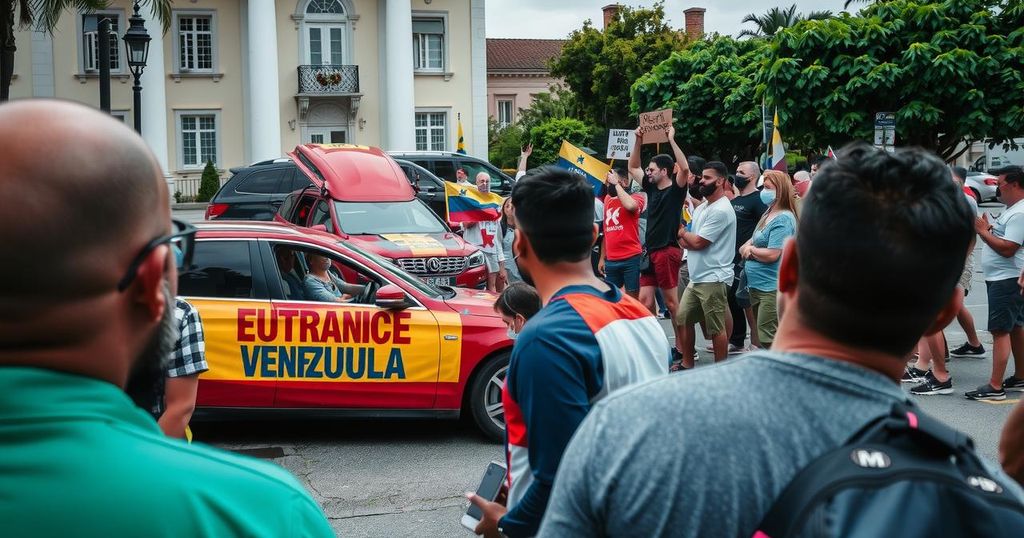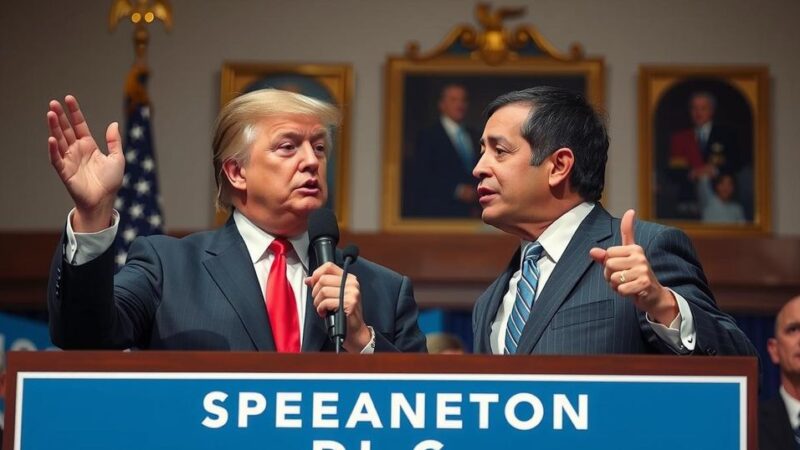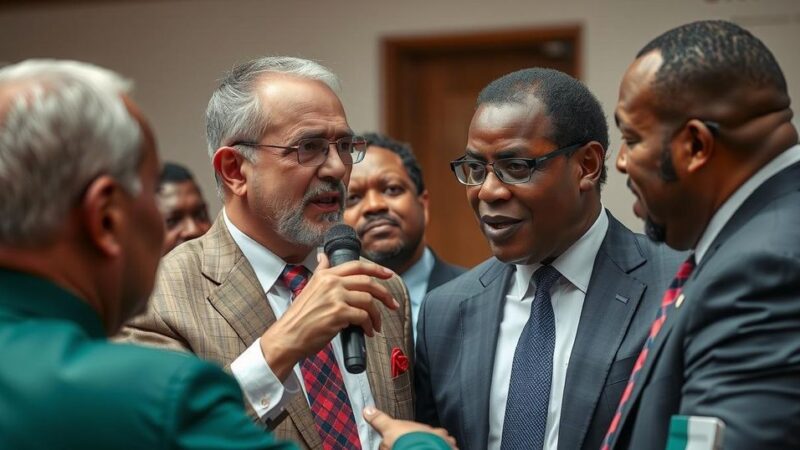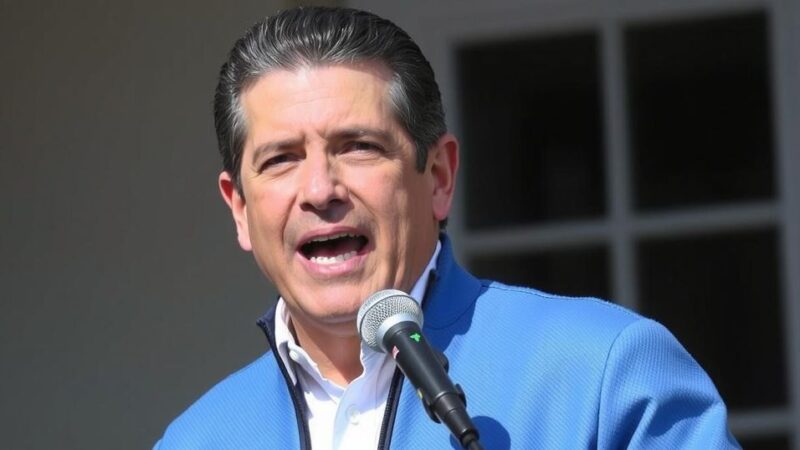Six Venezuelan government opponents denounced increased police presence outside the Argentine embassy in Caracas, prompting U.S. condemnation of the actions as international law violations. The opponents, affiliated with Vente Venezuela, face heightened tensions after calls for mobilization against President Maduro’s regime. Argentina’s Foreign Ministry also characterized the police presence as harassment, signaling a call for international support against such actions.
In a concerning development, six Venezuelan government opponents residing at the Argentine embassy in Caracas reported a significant police presence outside their refuge, particularly over the weekend. This situation subsequently drew the condemnation of the U.S. government, which deemed it a serious breach of international law, while Argentina’s Foreign Ministry characterized it as harassment. The dissenters, primarily affiliated with the Vente Venezuela party under former legislator María Corina Machado, protested against what they described as an unprecedented siege orchestrated by local officials, which they alleged started on Saturday night and persisted into Sunday.
Shortly before this incident, Machado had called for a massive rally on December 1, which prompted Venezuela’s interior minister to accuse her of conspiring against President Nicolas Maduro’s government. The Vente Venezuela party highlighted that the embassy was without electricity and surrounded by vehicles affiliated with the regime, obstructing local traffic and disrupting communication signals. In response, Argentina’s Foreign Ministry stressed that the actions of armed personnel and the closure of roads represented a severe security disturbance, urging the international community to denounce such behavior, a call echoed by U.S. officials.
The U.S. Embassy in Venezuela took to social media, asserting that “the deployment of armed forces and blockades seriously violate international law,” and demanded that the Venezuelan regime uphold its international commitments, cease intimidation tactics, and ensure safe passage for asylum-seekers. It is pertinent to note that diplomatic ties between Venezuela and Argentina have remained strained since 2019, exacerbated by recent events surrounding the embassy’s security details. The opposition members first sought refuge in the Argentine embassy in March after facing arrest warrants from the Venezuelan Attorney General’s Office, which accused them of inciting violence aimed at destabilizing the government. This precarious situation escalated following Brazil’s involvement in providing security at the Argentine embassy in light of Venezuelan actions against its diplomatic staff, a development that illustrates the fragile state of regional diplomacy.
The political climate in Venezuela has been tumultuous, particularly following the 2019 political crisis, which has seen many opposition members seek refuge in foreign embassies to escape persecution from the government led by President Nicolas Maduro. The Argentine embassy in Caracas has become a focal point for this discontent, hosting several political opponents who have faced legal actions. Tensions escalated after recent controversial elections in Venezuela, alongside remarks from South American leaders concerning the legitimacy of the Maduro regime. The involvement of regional powers such as Argentina and Brazil reflects broader geopolitical interests and the humanitarian concern for individuals seeking asylum.
The events surrounding the Argentine embassy in Caracas highlight a significant violation of diplomatic norms and raise serious concerns regarding the treatment of political dissent in Venezuela. The strong responses from the U.S. and Argentina’s calls for international condemnation underscore the global implications of Venezuela’s domestic policies. The international community continues to monitor the situation closely, as the safety and rights of asylum-seekers remain at the forefront of this ongoing crisis.
Original Source: www.voanews.com







